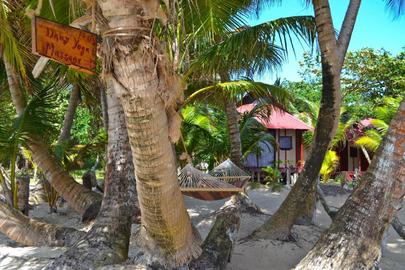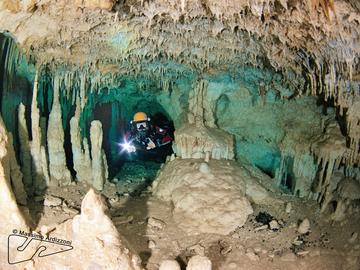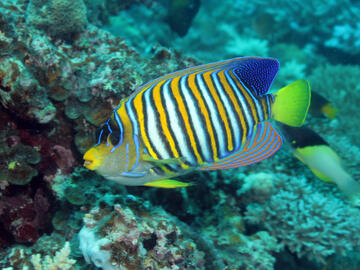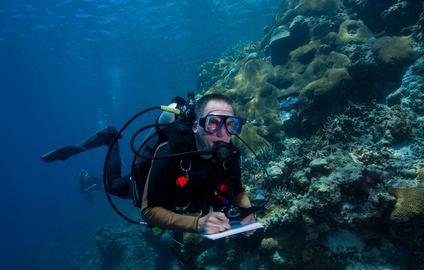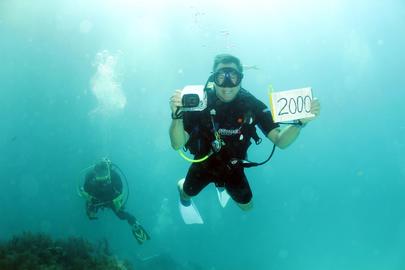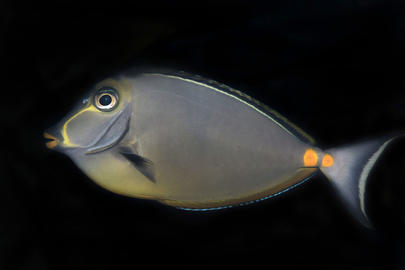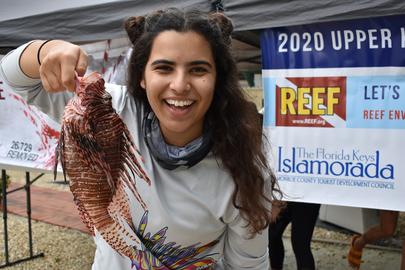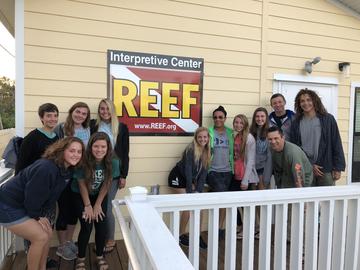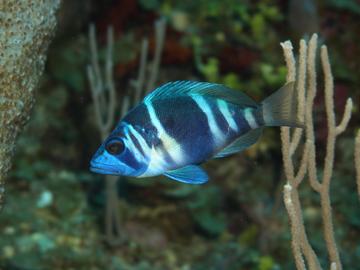REEF's inaugural Field Survey to Little Corn Island is an ideal trip for adventurous travelers and surveyors in search of a unique experience. Only two miles long by one mile wide, this island off the coast of Nicaragua is a tiny, Caribbean paradise known for calm seas and shallow reefs. There are more than 20 dive sites located around the island, and most sites are a short boat ride away.
Current search
Search found 119 items
- tropical western atlantic
- (-) Remove amylee714 filter amylee714
REEF members are the heart of our grassroots marine conservation programs. A diverse community of divers, snorkelers, and ocean enthusiasts support our mission to conserve marine environments worldwide.
Are you interested in teaching fish ID to others, but aren't sure where to begin? Check out REEF's marine life identification curricula, which is available for 15 different areas! These instructor-led courses include everything you need to teach divers and snorkelers about some of the most commonly encountered species in a given region. Dive shops, clubs, and instructors can use this resource to introduce divers and snorkelers to citizen science and marine life identification.
REEF members are the heart of our grassroots marine conservation programs. A diverse community of divers, snorkelers, and ocean enthusiasts support our mission to conserve marine environments worldwide.
REEF members are the heart of our grassroots marine conservation programs. A diverse community of divers, snorkelers, and ocean enthusiasts support our mission to conserve marine environments worldwide.
REEF members are the heart of our grassroots marine conservation programs. A diverse community of divers, snorkelers, and ocean enthusiasts support our mission to conserve marine environments worldwide.
In April 2018, two non-native marine fish species were live-captured from South Florida waters, including an Orangespine Unicornfish (Naso lituratus) in Key Largo and a Lagoon Triggerfish (Rhinecanthus aculeatus) in Fort Lauderdale. Both fishes, native to a wide range in the tropical west Pacific, were collected separately through a collaborative effort between REEF, Phillip and Patricia Frost Museum of Science, and the United States Geological Survey (USGS).
KEY LARGO, FLA. – In spite of Tropical Storm Sally’s unexpected appearance over south Florida, 23 teams took to the water this weekend, bringing in a total of 1,321 invasive lionfish during the 2020 Upper Keys Lionfish Derby; the most fish ever harvested at a REEF Lionfish Derby held in the Florida Keys. Teams were permitted to fish anywhere in Florida, from sunrise to sunset on Friday, Sept. 11 and Saturday, Sept. 12. More than $4,000 in cash and prizes was awarded to teams who brought in the most, largest, and smallest lionfish.
Last month, REEF’s Explorers Education Program had the pleasure of working with two collegiate groups in Key Largo, Florida. Each group of students spent one fun-filled week working alongside REEF staff and interns to learn about TWA (Tropical Western Atlantic) fish identification and the REEF survey method. The first group was nine students from Georgia State University, accompanied by their professor, Dr. Amy Reber. This weeklong education program has become an annual component of Georgia State's marine ecology course.
Are your gills drying out in self-quarantine? Grab your laptop, tablet, or even a smartphone and join us for our next Fishinar, Fishes of Guanaja, on Thursday, April 16 at 8:00pm EDT! Instructor Janna Nichols will teach you tricks to identify the fishes of deep walls and tranquil gardens of Guanaja, located in the Bay Islands of Honduras - part of our Tropical Western Atlantic survey region. Fishinars are free webinars that will teach you the finer points of fish ID.

